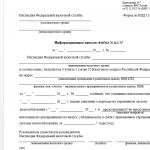+7(919) 784-86-56 oliva-morales
Subjunctive mood V Spanish(Modo Subjuntivo)
Spanish learners tend to have a lot of problems with this grammar topic. You can often hear them ask: “Why, in general, is the subjunctive mood (Modo Subjuntivo) needed in Spanish and when and where should it be used?”
Also, Spanish learners often call the subjunctive mood “the horror and nightmare of the Spanish language.” However, it is quite easy to convince them if you explain this topic step by step and offer to perform the appropriate exercises.
Before inviting you to do this, I would like to explain the essence of the topic.
Many students of Spanish mistakenly believe that the subjunctive mood (Modo Subjuntivo) in Spanish is some kind of tense, but do not understand what kind of tense it is.
The subjunctive mood (Modo Subjuntivo) is not a tense.
This is precisely the mood that combines four tenses:
Presente de Subjuntivo
It is used if the predicate verb of the main sentence is in one of the tenses of the actual type and conveys the plan of the present - future in relation to the action in the main sentence:
Quiero que vengas.- I want you to come.
Preterito Perfecto de Subjuntivo
It is used if the predicate verb of the main sentence is in one of the tenses of the actual type and conveys the plan of the past in relation to the action in the main sentence:
Me alegra que hayas venido.- I'm glad you came.
Imperfecto de Subjuntivo
It is used if the predicate verb of the main sentence is in one of the tenses of the historical type and conveys the plan of the present - future in relation to the action in the main sentence:
Quize que vinieras.- I wanted you to come.
Pluscuamperfecto de Subjuntivo
It is used if the predicate verb of the main sentence is in one of the tenses of the historical type and conveys the plan of the past in relation to the action in the main sentence:
Me alegro’ que hubieras venido.- I was glad that you came.
That is, each of the tenses of the subjunctive mood (Modo Subjuntivo) is important and necessary, and has its own rules of use.
Usually, when you start studying a given topic, you are already familiar with a certain number of tenses. indicative mood(Modo Indicativo) in Spanish. Look, you've probably already gone through, if not all of these times, then at least a couple or three of them:
Presente de Indicativo;
Preterito Perfecto de Indicativo;
Imperfecto de Indicativo;
Pluscuamperfecto de Indicativo;
Now you are invited to study the tenses of the same group, but only, no longer in the indicative, but in the subjunctive mood:
Presente de Subjuntivo;
Preterito Perfecto de Subjuntivo;
Imperfecto de Subjuntivo;
Pluscuamperfecto de Subjuntivo;
In general, we can say about the subjunctive mood (Modo Subjuntivo) that it is used:
1. mainly in subordinate clauses:
I'm sorry that's the case. – Lamento que sea asi.
2. if there are prerequisites for this in the main sentence, namely:
The predicate verb of the main sentence expresses feelings, emotions, experiences, orders, and some allegory.
I'm worried about what's going to happen on Tuesday. - Me preocupa lo que pase el martes.
They were ordered to return immediately. - Les han mandado que regresen en siguida.
I'm not saying that you're a bad student, but... - No digo que estidies mal pero...
3. the predicate of the main sentence is a verb of judgment with a negative particle (I don’t think, I don’t think, I don’t believe, etc.):
I don't think that's true. - No creo que sea asi.
4. if the conjunction of the subordinate clause is a conjunction que, which is translated into Russian by the word to, and neither What:
I want you to do this today. – Quiero que lo hagas hoy.
5. if the subordinate clause is introduced by such complex conjunctions as como si , sin que and the like:
Se porta como si fuera asi.- He acts as if it were true.
6. after the following main sentences: quizas que, ojala'que:
Ojala’ que sea asi!- God grant that it will be so!
7. if the subordinate clause conveys the future tense and is introduced by such temporary conjunctions as cuando , en cuanto and the like.
Te llamare? cuando regrese a casa.- I'll call you when I get home.
8. In some other cases.
Work through this material By textbook“Theoretical and practical grammar of the Spanish language with exercises on all standard grammar and tests.”
Presente de Subjuntivo (present tense, subjunctive mood)
Using Presente de Subjuntivo in simple sentences
IN simple sentences the present subjunctive mood (Presente de Subjuntivo) is used in two cases:
- To express the impulse to action, while que translated into Russian as let.
- For example:
- ¡Que el solcito brille siempre! – May the sun always shine!
- ¡Que nos ayuden! - Let them help us!
- To express a possible or conjectural action in combination with adverbs ojala- at least (God willing) and also tal vez, acaso, quiz,
puede ser, each of which is translated as Maybe.
- For example:
- ¡Ojalá me llame! - At least he called me!
- Quizás Jorge duerma. - Perhaps Jorge is sleeping.
- Acaso me encuentre con Carlos alli. “Perhaps I’ll meet Carlos there.”
Exception are adverbs posiblemente, probablemente which are used with verbs in the indicative mood (modo indicativo).
Using Presente de Subjuntivo in complex sentences
Consider the use of Presente de Subjuntivo in complex sentences.
Presente de Subjuntivo in subordinate clauses denotes an imperfect action in the present or future tense if the predicate in the main clause is in the Presente, Preterito perfecto compuesto, Futuro de indicative, Imperativo.
- IN subordinate clauses goals(where the main clause reflects the desire for the action of the subordinate clause to happen) Presente de Subjuntivo is always used.
Subordinate clauses of the goal are accompanied by the following conjunctions:
- a fin de que - for the purpose of
- para que - in order to
- porque - in order to
- a que - in order to
- con tal de que - in order to
- con objeto de que - in order to
- Let's look at examples.
- Te he despertado temprano para que lleges al trabajo al tiempo. - I woke you up so that you would come to work on time.
- Te doy una manzana para que te la comas hoy. - I give you an apple to eat today.
- ¿Puedes esperarme un poco para que me arregle? “Can you wait for me a little while so I can clean myself up?”
Please note that in subordinate clauses of the goal, Subjuntivo is used only when the main and subordinate clauses have different persons.
If the same person is mentioned in the main and subordinate clauses, then the preposition is used without que and is followed by the infinitive of the verb.
- For example:
- Te llamo para explicártelo. – I’m calling you to explain (this).
- Me he levantado temprano para ir a la unversidad. – I got up early to go to the university.
- In subordinate clauses of time Presente de Subjuntivo is used to express future action.
The following conjunctions are used:
- cuando - when
- en cuanto - as soon as
- hasta que - before
- mientras que - bye
- antes (de) que - before
- después (de) que - after
- Let's look at examples.
- Estaremos en San-Peterburgo hasta que termine la conference. – We will be in St. Petersburg until the conference ends.
- Hay que hablar con ella antes de que se marche. “We need to talk to her before she leaves.”
- Saldré de casa en cuanto me llames. “I’ll leave the house as soon as you call me.”
- If the predicate of the main sentence expresses will, then the subjunctive mood is used in additional clauses. The predicate in such cases means desire, request, demand, prohibition, permission, advice.
For example:
- querer – to want
- desear – to wish
- pedir – to ask
- rogar – to beg, to beg
- solicitar – to ask, to intercede
- exigir – demand
- mandar - to order, command
- orderar – to order, dispose
- obligar – oblige, force
- insistir (en que) - insist
- prohibir - to prohibit
- impedir – interfere, impede
- permit - allow
- aconsejar - to advise
- recommend - recommend
- preferir - to prefer
Let's look at examples.
- Quiero que vivamos en el centro de la ciudad. – I want us to live in the city center.
- Te pido que arregles tu cuarto. – I ask you to clean your room.
- El gerente exige que todos los obreros lleguen al trabajo a las 8. – The manager demands that all workers come to work at 8 o’clock.
- El doctor me prohibe que tome café negro, pero me lete que tome café con leche. – The doctor forbids me to drink black coffee, but allows me to drink coffee with milk.
- Te aconsejo que leas lo más posible. – I advise you to read as much as possible.
Note that verbs such as decir (to say) and gritar (to shout) can also express an order.
- El profesor dice que todos los estudiantes asisten a las clases. – The teacher says that all students are present in class.
- El profesor dice que todos los estudiantes asistan a las clases. – The teacher tells all students to attend class.
We see that the choice of mood changes the meaning of the phrase. When using the indicative mood (modo indicativo), the teacher simply reports the fact of the presence of students, and when using the subjunctive mood (modo subjuntivo), he expresses the demand for their presence.
- If the predicate of the main sentence expresses various emotions, then the subjunctive mood is used in additional clauses.
For example:
- temer - to be wary
- tener miedo de - to be afraid
- alegrarse de - to rejoice
- sorprenderse de - to be surprised
- extrañarse (de) - to be surprised
- asombrarse de - to be surprised
- admirarse de - to admire
- sentir - to regret
- lamentar regret
- estar contento de - to be satisfied
- estar disgustado de - to be dissatisfied
- esperar – to hope
Let's look at examples.
- Temo que perdamos el tiempo aqui. “I’m afraid we’re wasting time here.”
- Me alegro de que mañana me visiten mis amigos. - I'm glad that my friends will visit me tomorrow.
- Siento mucho que ellos tengan mala suerte. - I regret that they are unlucky.
- Estoy contento de que Victor tome parte en las competición deportiva. – I am pleased that Victor will participate in the competition.
- Espero que cambiemos el proveedor. – I hope we change the supplier.
- If the main clause contains verbs or phrases expressing doubts or uncertainty, then in subordinate clauses the subjunctive mood Subjuntivo is used.
Verbs and phrases can be the following:
- dudar - to doubt
- tener duda de - to doubt
- no creer - do not count
- no pensar - not to think
- no estar seguro - to be unsure
- no estar convencido - not to be convinced
For example:
- Dudamos que Pedro busque un trabajo. – We doubt that Pedro is looking for work.
- No creo que él reciba el visado de España. – I don’t think he will get a Spanish visa.
- No estan seguros que la película sea interesante. – They are not sure that the film is good.
- If the main sentence is the impersonal phrases listed below, then Presente de Subjuntivo is used in subordinate clauses. Impersonal phrases can express necessity, possibility, emotional assessment, logical assessment, doubt or uncertainty. Please note that in meaning this corresponds to paragraphs 3,4,5.
Expressions expressing necessity:
- es necesario que - it is necessary that
- es obligatorio que – it is necessary that
- es preciso que – it is necessary that
- hace falta que – it is necessary that
- es mejor que – it’s better that
- es aconsejable que - it is desirable that
Expressions implying opportunity:
- es posible que – it is possible that
- es probable que – it is probable that
- puede (ser) que – it may be that
- parece mentira que – I can’t believe that
- es increible que – it’s incredible that
- es imposible que – it is impossible for
- es fácil que – it is quite possible that
Expressions that give emotional or logical assessment:
- es sorprendente que – it’s amazing (amazing) that
- es asombroso que – it’s amazing that
- es raro que – it’s strange that
- es extraño que - it’s strange that
- es agradable que - it’s nice that
- es maravilloso que - it’s amazing (amazing) that
- es una lástima que – it’s a pity that
- es horrible que – it’s terrible that
- aterra que – it saddens me that
- asusta que – it’s scary that
- da miedo que – it’s scary that
- bueno es que – it’s good that
- será mejor que – it will be better that
- consuela que – consoles that
- es ridículo que – it’s ridiculous that
- lo malo es que – the trouble is that
- inquieta que - worries that
- molesta que – worries that
- enfada que – it’s annoying that
- cabrea que – angry (annoyed) that
- indigna que – outraged that
- es una vegrüenza que – it’s a shame that
- es normal que – it is natural that
- es logico que – it is logical that
- es natural que – it is natural that
- es bastante que – it is enough that
- es importante que - it is important that
- es útil que - useful so that
- es inútil que - it is useless to
Expressions meaning doubt or uncertainty:
- es dudoso que - it is doubtful that
- no es verdad que - it’s not true that
- no es cierto que – not exactly what
- no es seguro que – it is doubtful that
- no es evidente que - it is not obvious that
- no está claro que – it’s unclear what
- no estar seguro de que - not to be sure that
Let's look at examples.
- Es increíble que él pierda el tren. - It is impossible that he would miss the train.
- Hace frio. Es mejor que te pongas un abrigo. - Cold. It's better that you put on a coat.
- Es una lástima que llegues tarde. - It's a pity that you'll come late.
- No estoy seguro que el telefono funcione. - I'm not sure the phone is working.
- Es duduso que ella diga la verdad. - It is doubtful that she is telling the truth.
- Es bastante que él asista a las negociaciones. It is enough for him to be present at the negotiations.
- In subordinate clauses Presente de Subjuntivo is usually used to express a possible, expected or desired action in the future or present.
- For example:
- Necesito una butaca que sea grande y cómoda. - I need a chair that is large and comfortable.
When is Subjuntivo NOT used?
And now, to avoid confusion, we will consider cases where Subjuntivo is obviously not used. The following verbs and expressions in the main clause imply the use Indicative in subordinate clauses.
- creer que - believe (consider) that
- no dudar que - no doubt that
- no negar que - do not deny that
- es cierto que - exactly (true) that
- es claro que - it is clear that
- es evidente que - it is obvious that
- es obvio que - it is obvious that
- estar seguro que - to be sure that
- es verdad que - it's true that
- no cabe duda que - no doubt that
- no es dudoso que - it is certain that
- no hay duda que - there is no doubt that
Since these expressions express confidence, then with them not used Subjuntivo.
Presente de subjuntivo- present tense of the subjunctive mood.
Subjunctive mood (conjunctive) in Spanish indicates the possibility, necessity, desirability of action. Modo Subjuntivi forms are used mainly in complex sentences, in a dependent clause.
In Subjuntivo Spanish verb expresses, first of all, not the action itself, but the attitude of the speaker to the action (hence spanish name: Modo is a manner, a way, and Subjuntivo is conditional, that is, one that correlates with the action. Compare:
- Russian: He asks you to close the doors.
- Spanish: ?l pide que cierres la puerta.
Formation of forms Subjuntivo in Spanish regular verbs and verbs in which spelling changes occur.
1) Formation of Presente de Subjuntivo in Spanish in the subjunctive mood of the present tense, verbs ending in -ar change the vowels -e-, -i-, to -a- at the end. It is this alternation of final vowels that distinguishes Presente de Subjuntivo from Presente de Indicativo.
Presente de Subjuntivo is formed by adding endings to the stem of the verb:
|
1 conjugaci?n |
2 conjugaci?n |
2 conjugaci?n |
|
|
Yo |
|||
|
T? |
|||
|
?l |
|||
|
Nosotros |
|||
|
Vosotros |
|||
|
Ellos |
2) Education Presente de Subjuntivo from verbs that have spelling changes during conjugation, occurs according to the following rules:
|
Root vowel change |
Presente de subjuntivo |
|
empezar: e - ie under stress |
empiece, empieces, empiece, empecemos, empec?is, empiecen |
|
contar: o - ue under stress |
contar: o - ue under stress |
|
pedir: e - i under stress, before stressed diphthong and vowel a |
pide, pidas, pida, pidamos, pid?is, pidan |
|
preferir: e- ie under stress, e - i before stressed diphthong and vowel a |
prefiera, prefieras, prefiera, prefiramos, prefir?is, prefieran |
|
dormir: o -ue under stress, o- u before stressed diphthong and vowel a |
duerma, duermas, duerma, durmamos, durm?is, duerman |
|
conocer: before ca, co - z (zco, zca) |
conozca, conizcas, conozca, conozcamos, conozc?is, conozcan |
|
construir: y before a, e, o verb ending |
construya, construyas, construya, construyamos, consrtuy?is, construyan |
Subjuntivo in Spanish is used in complex sentences in the following cases:
- when the verb of the main sentence expresses will, wish, request, permission, prohibition. Le he dicho que venga. I told him to come.
- when the verb of the main sentence expresses doubt, uncertainty, denial (dudar, hesitar, titubear - doubt), (negar, renunciar, rehusar - prohibit, refuse, deny). Dudo que ella escriba. I doubt that she will write.
- when the verb of the main sentence expresses different emotions (joy, fear, surprise, regret). The following verbs include: alegrarse (to rejoice), sorprenderse, admirarse (to be surprised), sentir, lamentar (to regret), tener miedo, temer (to be afraid). Temo que ?l est? enfermo y por eso no me escriba. I'm afraid that he is sick and that's why he doesn't write to me.
- after impersonal phrases es necesario que, hace falta que, es precioso que (it is necessary that), es posible que, es probable que (it is possible that). Es necesario que vengas. I need you to come.




